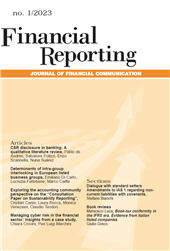Determinants of Intra-group Interlocking in European listed business groups
33-66 p.
Purpose: The phenomenon of Interlocking Directorship within the same business group (the Intra-group Interlocks, IgI) has received little attention by scholars, especially when the interlocked affiliated-group companies are listed. Focusing on listed business groups, characterized by the presence of at least two affiliated-listed companies, and following the contingency perspective, this study aims to explore the determinants of IgI. Design/methodology/approach: The study analyses the controlling shareholder type (family, State, coalitions), the business ties, and the separation between ownership and control, focusing on 315 business groups listed in different European countries, i.e., Belgium, France, Greece, Italy, Spain, and Portugal. The social network analysis is applied to these groups, to compare the networks that originate from the corporate board of directors.
Findings: In groups controlled by the State the density of social links is lower than in those controlled by families and coalitions. The strength of IgI is also related to the degree of correlation of firms' industries, even if this correlation is influ-enced by the separation between ownership and control and by the country regulation that protects minority shareholders. Overall, the results show that for listed groups the agency theory better explains the determinants of the IgI phenomenon.nality/value: This study contributes to the understanding of why board members of listed parent companies sit (or do not sit) in the listed subsidiary boards. Relying on agency theory and resource dependence theory, it also propos-es a theoretical framework. [Publisher's text].
-
Artículos del mismo número (disponibles individualmente)
-
Información
Código DOI: 10.3280/FR2023-001002
ISSN: 2036-6779
KEYWORDS
- board of directors, business groups, intragroup interlocking, resource dependence, agency theory


